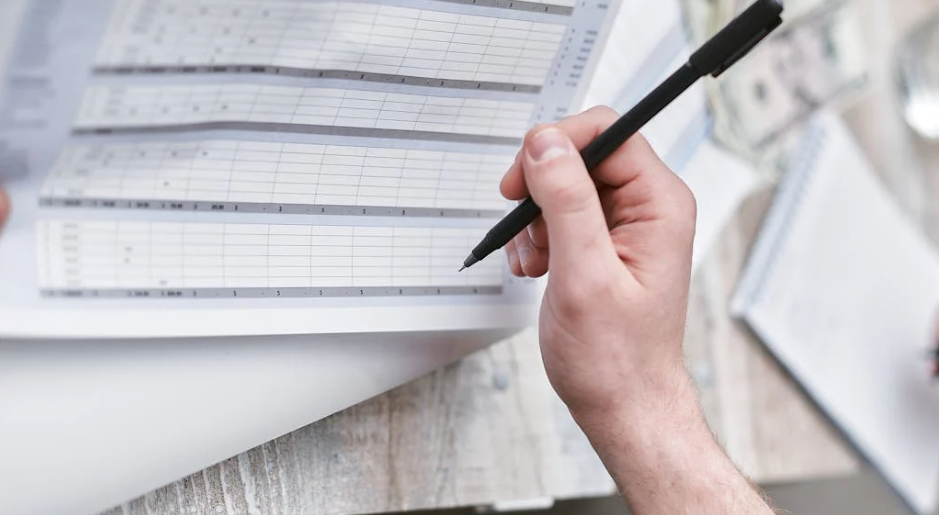- EasyCard
- Trade
- Help
- Announcement
- Academy
- SWIFT Code
- Iban Number
- Referral
- Customer Service
- Blog
- Creator
Where Can You Buy a Money Order? Learn About the Ways and Costs of Purchasing a Money Order
A money order is a prepaid paper instrument, similar to a check, but it requires advance payment to ensure that it is settled when cashed. It is a secure way to send money, suitable for situations where you don’t want to use cash or personal checks. This article will introduce how to buy a money order, as well as information about the costs and limitations of money orders. For those who need to send money quickly and safely, a money order is a very convenient option. At the same time, as a modern payment platform, BiyaPay also provides efficient and secure money transfer services, making money transfers more convenient.

What is a Money Order?
A money order is a payment instrument issued by financial institutions such as banks and post offices, or retailers, and is used to complete prepaid money transfers. Unlike a check, a money order requires payment in advance before cashing, ensuring that the payee can receive the money without worry when cashing it. Money orders are usually used in scenarios where cash or checks cannot be used, such as long-distance money transfers and international payments.
It has a wide range of applications, suitable for both domestic and international money transfers. Because of its security, it is widely used by users who do not want to carry cash directly or do not trust personal checks. When a user buys a money order, they pay the amount of the money order and the related fees, and then can cash it at places such as banks, post offices, and Walmart.
Where Can You Buy a Money Order?
There are various ways to buy a money order, and users can choose the most convenient and cost-effective way according to their own needs. Here are several common places to buy a money order:
United States Postal Service (USPS)
Money orders provided by the United States Postal Service are widely accepted across the country and are a payment method chosen by many people. Depending on the amount of the money transfer, the fees are approximately between $2.35 and $3.40. Although the fees are relatively high, its nationwide acceptance and the widespread presence of post offices make it a convenient choice.
Banks and Credit Unions
Banks and credit unions are also common ways to buy a money order, but usually, the fees for money orders from these institutions are relatively high. The fees vary among different banks, usually ranging from $3 to $10. For users who need to transfer a large amount of money, the money order services provided by banks and credit unions have high security and credibility, but the cost is higher.
Walmart
Walmart offers a convenient option for buying money orders, which is a relatively low-cost way. The fees for money orders at Walmart usually do not exceed $1, so it has become the first choice for many users who need to transfer a small amount of money. It is very convenient to use, and with stores all over the country, both buying and cashing are relatively simple.
Convenience Stores and Western Union
Convenience stores and Western Union also provide money order services. Although the fees for money orders at these places are relatively low, the security and service quality may vary. When choosing these places to buy a money order, users should ensure the reliability of their services and the transparency of the fees.
How Are the Costs of Money Orders Calculated?
The costs of money orders vary depending on the place of purchase. The fees for money orders from traditional financial institutions such as the United States Postal Service (USPS) and banks are relatively high, while those from Walmart and convenience stores are relatively low. Here is a comparison of some common money order fees:
- USPS: $2.35 to $3.40 (depending on the amount of the money transfer)
- Banks and Credit Unions: Usually between $3 and $10
- Walmart: Does not exceed $1, usually very economical
- Convenience Stores and Western Union: The fees fluctuate greatly, usually lower than those of banks, but the specific fees need to be consulted according to the actual situation
What is the Limit of a Money Order?
The amount limit of a money order varies depending on the place of purchase. Generally speaking, the maximum amount for domestic money transfers is $1,000, and the maximum amount for international money transfers is $700. If you need to transfer a higher amount of money, you can achieve this by buying multiple money orders. This provides more flexibility for users who have large transactions or need to transfer money frequently.
When choosing the amount of a money order, users should consider their actual needs. If a small payment is required, a money order of less than $1,000 is sufficient. For larger transactions, it is recommended to buy money orders in batches to ensure the smooth progress of the money transfer process and reduce the fees for a single money order.
Where Can a Money Order Be Cashed?
There are a wide variety of places where a money order can be cashed. Users can cash a money order at the following places:
- Banks and Credit Unions: Banks and credit unions are usually the most reliable places to cash a money order, but they may charge a certain handling fee.
- United States Postal Service (USPS): USPS offices also provide money order cashing services, and the fees are generally low.
- Walmart and Convenience Stores: Many Walmart and convenience stores also support the cashing of money orders, but note that the fees and service quality may vary at different locations.
A money order is a very reliable payment method, but compared with other money transfer methods such as digital currency and electronic transfer, it also has some disadvantages. Compared with digital currency money transfers, money orders are slower in the transfer speed, and users need to face the problems of money transfer limits and high fees. However, the advantage of a money order lies in its security and wide acceptance. Especially in situations where it is inconvenient to use cash or checks, a money order is undoubtedly an ideal choice.
Conclusion
As a secure and prepaid money transfer method, a money order is widely suitable for money transfer scenarios where cash or checks are not to be used. Whether through the United States Postal Service, banks, Walmart, or convenience stores, a money order can provide a convenient money transfer experience. When choosing a money order, users should select the appropriate place of purchase and amount according to their own needs.
If you prefer to use a modern money transfer method without an amount limit, BiyaPay is undoubtedly a good choice. BiyaPay’s money transfers have no amount limit, cover most regions and countries, and adopt the most efficient and secure local money transfer method, allowing users to easily make international payments and cross-border money transfers. For those users who frequently need to make cross-border money transfers, the efficient and secure services provided by BiyaPay will be a very convenient option.
*This article is provided for general information purposes and does not constitute legal, tax or other professional advice from BiyaPay or its subsidiaries and its affiliates, and it is not intended as a substitute for obtaining advice from a financial advisor or any other professional.
We make no representations, warranties or warranties, express or implied, as to the accuracy, completeness or timeliness of the contents of this publication.




Contact Us
Company and Team
BiyaPay Products
Customer Services
is a broker-dealer registered with the U.S. Securities and Exchange Commission (SEC) (No.: 802-127417), member of the Financial Industry Regulatory Authority (FINRA) (CRD: 325027), member of the Securities Investor Protection Corporation (SIPC), and regulated by FINRA and SEC.
registered with the US Financial Crimes Enforcement Network (FinCEN), as a Money Services Business (MSB), registration number: 31000218637349, and regulated by FinCEN.
registered as Financial Service Provider (FSP number: FSP1007221) in New Zealand, and is a member of the Financial Dispute Resolution Scheme, a New Zealand independent dispute resolution service provider.




















